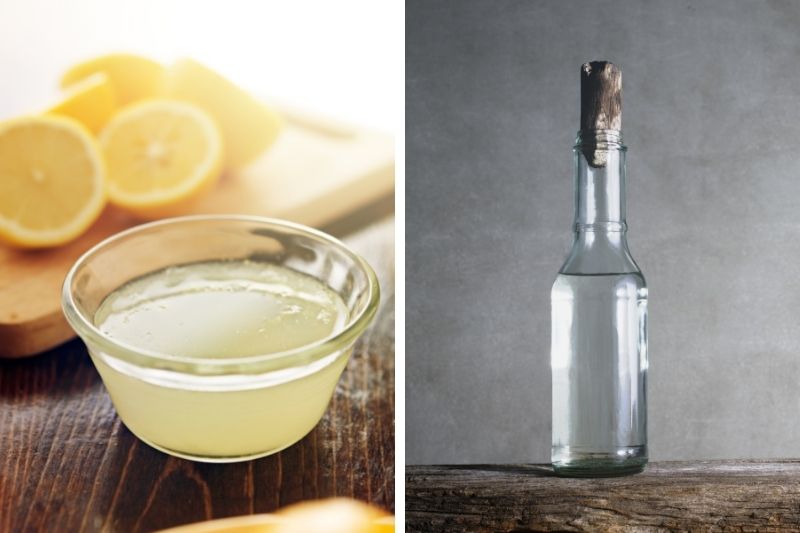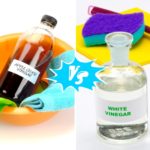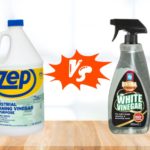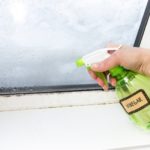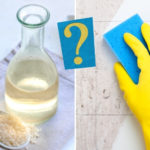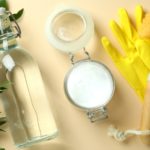Lemon juice and vinegar are some of the most well-known natural cleaning agents around.
But when it comes to cleaning, deodorising and removing limescale from around your house, which product actually works better?
Find out if it’s lemon juice or vinegar that can clean your home the best below.
Let’s take a look at vinegar and lemon juice in more detail to see which product is the best cleaner!
Key Ingredients
Vinegar, in particular white vinegar, is created through a fermentation process.
During this fermentation process a grain-based alcohol is broken down by bacteria known as acetic acid. By the end of this process, you end up with an acetic acid-based product, in this case, it is called white vinegar.
On the flipside, lemon juice comes from lemons. The juice is usually squeezed from the lemons and is used to clean items around the home.
It is largely made up of citric acid, and it is this acid that makes it a good cleaning agent.
Smell
One of the biggest differences between lemon juice and white vinegar is their smell.
The zesty, summery odour that lemon juice gives off is so fresh and clean smelling that it appeals to lots of people when they are cleaning their home.
On the other hand, white vinegar can be quite pongy, and not in a good way. Usually when people clean with vinegar, they have to open all the windows in the house, light some candles, or neutralise the smell of the vinegar by adding some fragrance to it.
This can be more time-consuming, and the general smell can turn people off using white vinegar from the start of the cleaning session. Lemon juice has got the nicest smell by far out of the two products.
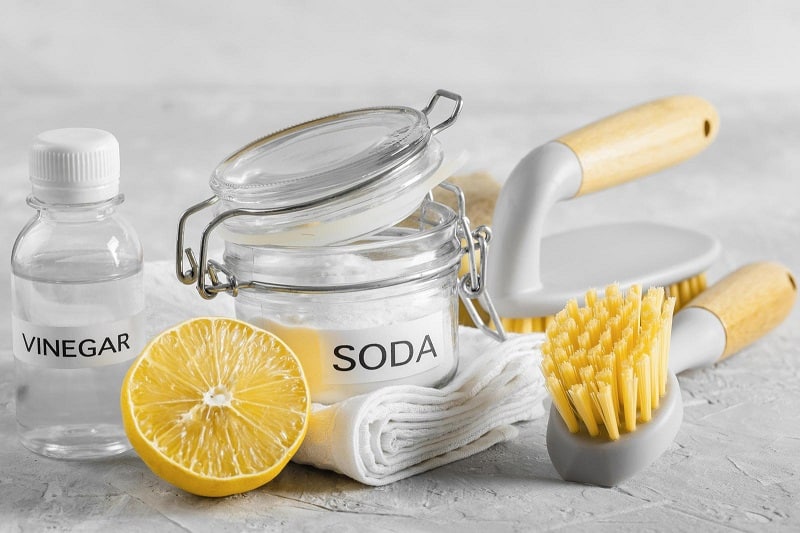
Appearance
White vinegar usually comes in a bottle of some sorts and you can see the clear liquid inside. Typically, the vinegar is ready to be used straight away.
Lemon juice, on the flip side, can either be bought in a small bottle form, or you can buy a real lemon and squeeze the juice out yourself.
Both products look like normal liquid-based cleaning items!
Price
The price of lemon juice can vary between shops, and the price also changes if you buy a named brand or not.
You can expect to spend around 60p for a small 250 ml bottle of lemon juice from leading supermarkets.
Although, if you bought an actual lemon this would cost you around 30p for one. You would, of course, have far more juice in a small bottle of juice in comparison to one lemon.
White vinegar, on the other hand, can be bought in a spray bottle form and it’ll cost you around £2 to purchase a 500 ml bottle.
But do keep in mind that these prices fluctuate as you move from one shop to another.
Based on the figures above, you’d get more vinegar for your money, if you bought a 500 ml spray bottle.
A bottle of this size would be an ample amount for most cleaning sessions, and it would be more convenient to use a spray bottle.
Strength and pH Level
White vinegar has a pH reading of around 2.5 and lemon juice has a pH reading of about 2 to 3.
Both products have a high acidity level which makes them equally good for cleaning.
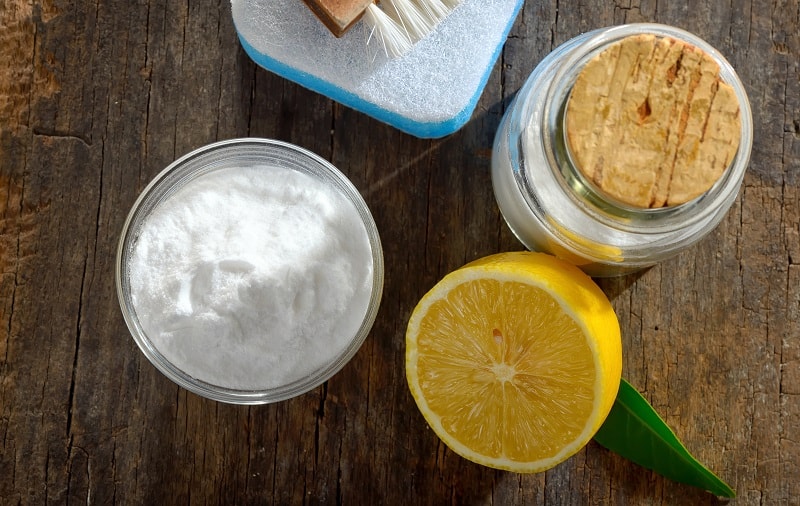
Lifespan
Both lemon juice and white vinegar can last for long periods of time. But actual lemons will go out of date far quicker than a bottle of white vinegar.
If you choose to use bottled lemon juice as an alternative, this would last longer than a real lemon.
In terms of cleaning though, there’s a much better chance that you’ll have a bottle of vinegar stuffed into the back of a cupboard at home, that’s in date, and ready to use.
Of course, if you’re partial to adding a slice of fresh lemon to your drinks, then you can obviously use these lemons that you have readily available!
Uses
Below you’ll find a list of common uses for both lemon juice and white vinegar. As you’ll see these two products have several uses when it comes to cleaning. And if one product can’t clean a particular item, the other product can usually wash it instead.
Lemon juice uses:
- Removing odours from the microwave
- Removing odours from the fridge
- Treating limescale
- Cleaning the toilet
- Cleaning glass
- Cleaning mirrors
- Cleaning taps
- Cleaning showerheads
White vinegar uses:
- Cleaning laundry
- Removing nasty stains from mugs
- Window cleaning
- Cleaning the toilet
- Cleaning a showerhead
- Weed killer
- Descaling kettles
- Treating stains
Weak Points
While both lemon juice and white vinegar are great natural cleaning alternatives, they don’t always remove 100% of the bacteria in your home.
In addition to this, vinegar has its uses but it cannot be used to clean every surface in a home. Which means you’d have to go out to buy an additional product or two to clean these areas. And this will raise your costs.
Vinegar, for example, cannot be used to clean marble, wood and granite worktops. Nor can it be used to clean electronic items.
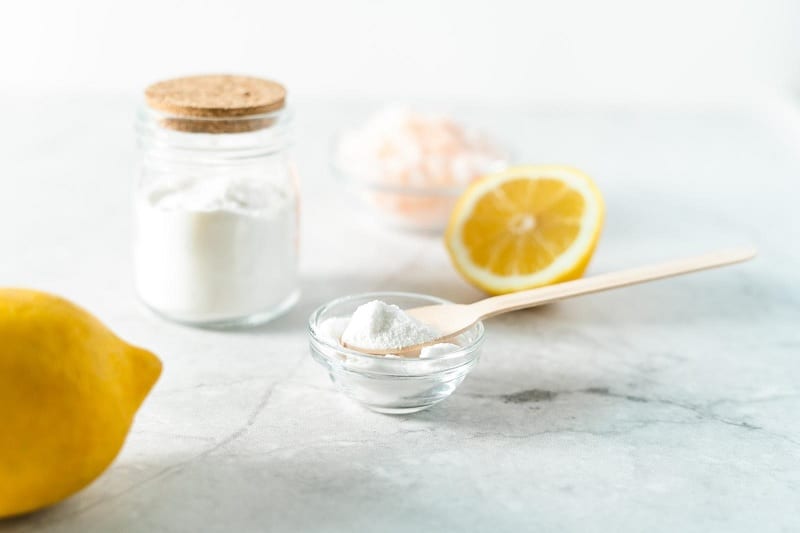
Can You Mix Lemon Juice and Vinegar Together?
Yes, you can use both lemon juice and white vinegar together! In fact, lemon can mask the poor odour of vinegar. Mixing lemon juice and vinegar creates a versatile cleaning solution that you can use for a lot of cleaning tasks.
Which Vinegar Is Best for Cleaning?
In general, most people know what a lemon looks like, so there’s usually no problem when you pop to the shop to buy this item. Plus, a bottle of lemon juice can be found fairly quickly in most shops. So, in short, you can actually get to work cleaning with a lemon pretty quickly!
On the flip side, there are lots of different vinegars to be had, and choosing the right one for your cleaning job can be a little troublesome.
White vinegar – the best choice
The vinegar that’s most commonly used in the cleaning world is white vinegar. This type of vinegar is used because it has a higher acetic acid level reading, which is what you need for cleaning, and it is usually cheaper than other vinegars.
But people often make the mistake of buying other vinegar versions, like malt vinegar or white wine vinegar. This, in turn, means that users don’t see the desired end-results when they clean with these other vinegar versions.
Malt – not ideal
Malt vinegar is a little more pungent, is brown in colour and can leave stains on surfaces. And while using this particular vinegar instead may not cause too much havoc, there are better vinegars to use.
White wine vinegar – more expensive and not as strong
Similarly, choosing to use white wine vinegar also won’t cause too many cleaning problems for you. The only major issue is that this type of vinegar isn’t that strong and it’s usually more expensive to buy. So, you may find yourself using more white wine vinegar than necessary and it’ll cost you extra too.
Finding the right vinegar can take a little longer in comparison to just picking up a lemon. So, if you were in a rush to clean, a lemon would be the fastest option for you.
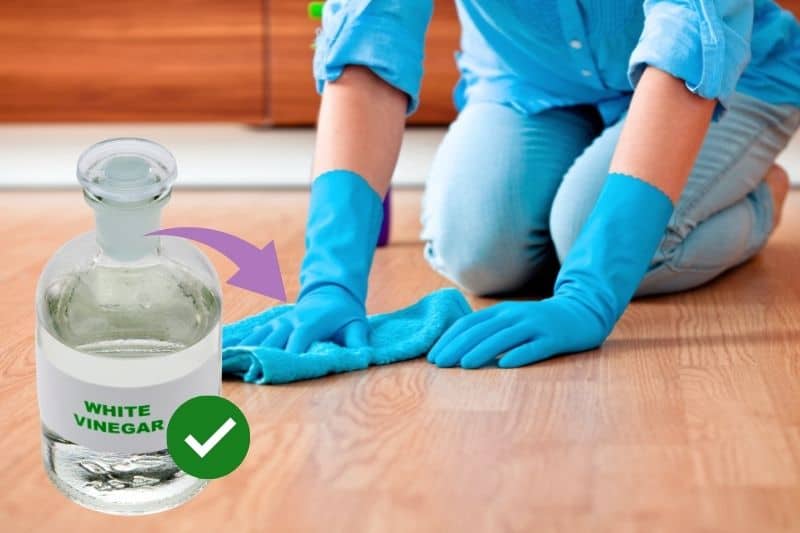
What’s Better for Cleaning: Lemon Juice or Vinegar?
Lemon juice and white vinegar are both equally good for cleaning various items around your home.
They both have some drawbacks, like vinegar can’t be used to clean all surfaces and it smells funny, and lemon juice can work out more pricey.
But they both also have their strong points too, like they’re both natural, non-toxic cleaners.
Although you should always keep in mind that while they are both effective at cleaning, they do not always clean away 100% of the bacteria in your home.
You should, therefore, use these items with caution. And you should clean some surfaces and items in your home with actual antibacterial cleaners that have been tried and tested.

Bethan has a passion for exploring, reading, cooking and gardening! When she’s not creating culinary delights for her family, she’s concocting potions to keep her house clean!
